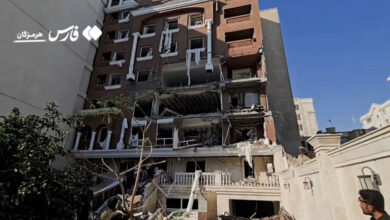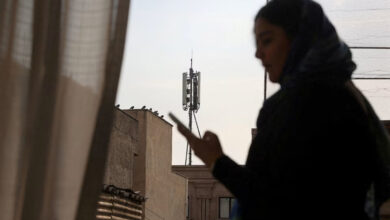
AFP — Female booth attendants at an international trade fair and shops selling men's ties have become targets in a strict crackdown by Tehran police on clothing deemed un-Islamic, Iranian media reported on Wednesday.
Women "not properly observing the hijab," or the Islamic headscarf, as they staffed stands at an international food exhibition, prompted police to shut down 80 of the booths, Iranian deputy police chief Ahmad Reza Radan was quoted as saying in the Mardomsalari newspaper.
His boss, police chief Esmail Ahmadi Moqadam, said the female attendants had been warned, "but they did not take it seriously — that is why we shut them (the booths) down."
It was not known if the women were fined or arrested, as often happens for such offences, nor was it known if any foreigners were among them.
The fair, which wrapped up on Wednesday, hosted exhibitions by companies from several countries, including Austria, China, France, Germany, India, Italy, South Korea, Spain and Turkey.
According to Mardomsalari and other media, police have also launched a fresh campaign to enforce an often-ignored ban on the sale of ties — apparel deemed by regime hardliners as a symbol of Western cultural influence rejected since Iran's 1979 Islamic revolution.
"We had to remove all ties from our shop" on the orders of Tehran's morality police, an unnamed shopkeeper told the ISNA news agency.
The ban appeared to be an effort to counter a comeback ties had been making in recent years in Iran, especially in ceremonial events such as weddings and funerals.
Tehran police have in recent weeks been zealously cracking down on clothing standards in the street, screening foot and vehicle traffic at major junctions and shopping centers.
The move is part of an annual campaign before the sweltering heat of summer, when women try to relax some of their mandatory clothing by opting for thinner, shorter coats and headscarves.
Women are required to wear a scarf covering their hair, a long coat to below the knee and to eschew heavy make-up and nail polish.
Violators are often arrested and taken to police stations, where they are typically fined and made to sign statements promising to dress properly in the future, though flogging can occur in rare cases. Relatives are usually called to collect them with clothing considered more appropriate.




